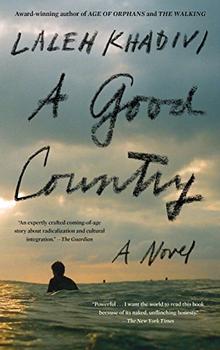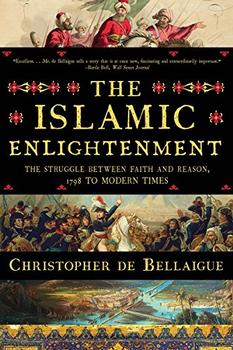Summary | Excerpt | Reading Guide | Reviews | Beyond the book | Read-Alikes | Genres & Themes | Author Bio

A versatile prose stylist... [Aboulela's] lyrical style and incisive portrayal of Muslims living in the West received praise from the Nobel Prize winner J. M. Coetzee... [she is] a voice for multiculturalism." - New York Times
It's 2010 and Natasha, a half Russian, half Sudanese professor of history, is researching the life of Imam Shamil, the 19th century Muslim leader who led the anti-Russian resistance in the Caucasian War. When shy, single Natasha discovers that her star student, Oz, is not only descended from the warrior but also possesses Shamil's priceless sword, the Imam's story comes vividly to life. As Natasha's relationship with Oz and his alluring actress mother intensifies, Natasha is forced to confront issues she had long tried to avoid - that of her Muslim heritage. When Oz is suddenly arrested at his home one morning, Natasha realizes that everything she values stands in jeopardy.
Told with Aboulela's inimitable elegance and narrated from the point of view of both Natasha and the historical characters she is researching, The Kindness of Enemies is both an engrossing story of a provocative period in history and an important examination of what it is to be a Muslim in a post 9/11 world.
1. Scotland, December 2010
Allah was inscribed on the blade in gold. Malak read the Arabic aloud to me. She looked more substantial than my first impression; an ancient orator, a mystic in shawls that rustled. The sword felt heavy in my hand; iron-steel, its smooth hilt of animal horn. I had not imagined it would be beautiful. But there was artistry in the vegetal decorations and Ottoman skill from the blade's smooth curve down to its deadly tip. A cartouche I could not make out. I put my thumb on the crossbar – long ago Imam Shamil's hand had gripped this. Malak said the sword had been in her family for generations. 'If I ever become penniless, I will show it to the Antiques Roadshow,' she laughed, and offered me tea. It was still snowing outside, the roads were likely to become blocked, but I wanted to stay longer, I wanted to know more. I put the sword back into its scabbard. With care, almost with respect, she mounted it on the wall again.
I followed ...
The concept of jihad has become synonymous with terrorism but when Imam Shamil, an honorable, even noble, character uses the term, he is describing the defense of his homeland, not aggression or acts of terror. In the contemporary storyline, Oz is arrested and his university career derailed, it appears, solely because of online research he conducts for a course. And although Natalie wants nothing more than to feel at home somewhere, it is clear in Aboulela's novel, that for a young, intelligent Muslim woman in the UK, feeling that she belongs is not as easy as it ought to be. At a time of international concern over terrorism and fears of jihad against non-Muslim nations, these threads that The Kindness of Enemies unearths, makes it a deeply humane, refreshing and insightful read...continued
Full Review
 (622 words)
(622 words)
(Reviewed by Kate Braithwaite).
 Margot Livesey, author of The Flight of Gemma Hardy
The Kindness of Enemies is a wonderful evocation of faith and fate and what it means to be an outsider.
Margot Livesey, author of The Flight of Gemma Hardy
The Kindness of Enemies is a wonderful evocation of faith and fate and what it means to be an outsider.In The Kindness of Enemies, Leila Aboulela's twenty-first century protagonist Natalie asks: "How did this historical change in the very definition of jihad come about?" This question is developed thematically though the historical storyline in Aboulela's novel which features Imam Shamil, a mid-nineteenth century Muslim leader of mountain tribes in the Caucasus Mountain region, battling for independence from Russian forces. Talking about his battle with the Russians, Shamil uses the term "jihad", but this is not the jihad of today's headlines - of ISIS (also known as Daesh) beheadings or the attacks in Paris and Beirut - and Shamil is a character who is highly religious, thoughtful and honest.
The Arabic translation of the word "jihad" ...

If you liked The Kindness of Enemies, try these:

by Laleh Khadivi
Published 2018
A timely novel about the radicalization of a Muslim teen in California - about where identity truly lies, and how we find it.

by Christopher de Bellaigue
Published 2018
A revelatory and game-changing narrative that rewrites everything we thought we knew about the modern history of the Islamic world.




Poetry is like fish: if it's fresh, it's good; if it's stale, it's bad; and if you're not certain, try it on the ...
Click Here to find out who said this, as well as discovering other famous literary quotes!